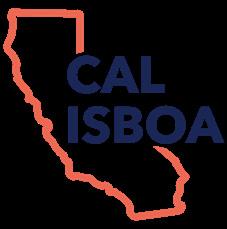




Contributors:
Grace Chan Partner | San Francisco
Jordan Carman
Associate | San Francisco
Hannah Dodge Associate | San Francisco
Christopher Fallon Partner | Los Angeles
Stephanie Lowe Senior Counsel | San Diego
Madison Tanner Associate | San Diego

The California Child Day Care Facilities Act (“Act”) requires child day care facilities to be licensed by the Department of Social Services (“DSS”) and to comply with the Act and relevant regulations. Noncompliance can result in DSS issuing citations and imposing civil penalties.
Three California churches, including Foothills Christian Ministries, brought a pre-enforcement challenge to this law, alleging that the Act and its implementing regulations violated their constitutional rights. The churches objected to the requirement that child care providers be licensed by DSS and to a regulation requiring child care facilities to inform parents that children may attend religious services of their own choosing. Their complaint asserted claims under the Free Exercise, Free Speech, and Establishment Clauses of the First Amendment, as well as under the Fourteenth Amendment’s Due Process Clause.
The plaintiffs operated or intended to operate preschool programs as extensions of their religious ministries. Foothills, which previously held a license revoked during the COVID-19 pandemic for noncompliance with masking directives, alleged that it no longer wished to operate “at the pleasure” of the state and objected to various regulatory conditions for licensure. The churches argued that these requirements violated their religious autonomy and compelled speech rights. The trial court dismissed the suit, holding that the plaintiffs lacked standing for some claims and failed to state a claim on others. The Ninth Circuit affirmed in full.
Foothills first challenged a DSS regulation requiring that children in licensed child care facilities be free to attend religious services of their choice, as decided by
their parents or legal guardians. The Court found that the plaintiffs lacked standing to challenge this provision because the state had never enforced it against religious providers offering only faith-based programming with parental consent. Indeed, California explicitly disavowed any intent to apply the regulation to prohibit such programs. Because Foothills failed to show a credible threat of enforcement, the Court dismissed the Free Exercise claim related to this provision for lack of jurisdiction.
The plaintiffs separately challenged the Act’s requirement that it must have a license in order to run a child day care facility, arguing that it imposed an unconstitutional burden on religious providers and lacked general applicability. Foothills argued that its religious beliefs are in conflict with the Act because, as a matter of faith, it does not believe that the state can override the decisions of parents.
The Ninth Circuit disagreed. It found that the licensing law was facially neutral and generally applicable. Although the statute contains exemptions for recreational programs like those operated by the YMCA or Boy Scouts, the Court concluded that these were not comparable to full-day child care programs in terms of the state’s interest in regulating health and safety. The Court applied rational basis review and upheld the licensing requirement as reasonably related to the state’s compelling interest in protecting children.
The plaintiffs also argued that the licensing law favored certain religious organizations, such as the YMCA, by exempting their recreation programs, thus violating the Establishment Clause. The Court rejected this claim, explaining that the exemption was based on the type of program, not the religious identity of the provider. If Foothills operated a qualifying recreation program, it too would be exempt. The Court concluded that the law did not prefer one religion over another and drew permissible distinctions based on program structure, not religious affiliation.
Foothills next challenged the requirement that child care providers inform parents of their right to choose their child’s religious participation, arguing that it compelled speech contrary to the School’s beliefs. The Court found that the compelled notice was factual, uncontroversial, and minimally burdensome. The Court held that the requirement served a substantial government interest in informing parents and protecting children and did not interfere with the School’s religious messaging. Because the law required only a one-page notice and a posted sign, the Court concluded that the regulation was neither unjustified nor unduly burdensome.
Finally, the Court rejected the plaintiffs’ argument that the licensing scheme imposed unconstitutional conditions by requiring providers to waive various constitutional rights, such as protection against warrantless searches and the right to a jury trial. The Court explained that licensed day care providers operate in a heavily regulated industry, and the limited search and inspection authority granted to DSS was constitutionally permissible under long-standing precedent. The Court found no plausible allegations that the regulations forced the plaintiffs to relinquish core constitutional rights, and thus dismissed the due process claim.
Foothills Christian Ministries v. Johnson (9th Cir. 2025) 2025 U.S. App. LEXIS 23189
Note:
For licensed religious child care providers in California, this case confirms that participation in the state’s licensing system does not, in itself, violate constitutional rights, even when religious beliefs inform a program’s structure and curriculum.

Jeanne Hedgepeth was a longtime social studies teacher at Palatine High School in Illinois. Hedgepeth was terminated after she posted a series of controversial Facebook posts made during the national unrest following the death of George Floyd. Hedgepeth, who had previously been suspended twice for profane classroom conduct, posted that she “needed a gun and training” because the “civil war has begun,” and in response to a meme about using highpressure water hoses against civil rights protestors, commented, “You think this would work?” She also stated that she found the term “white privilege” to be as racist as the N-word. Her Facebook friends were about 80% former students, and while her account was set to private, her posts quickly circulated and drew complaints from parents, students, and the media.
Township High School District 211 placed Hedgepeth on administrative leave, conducted an investigation, and ultimately recommended her dismissal. The District cited her violation of multiple conduct policies, her previous discipline record, and the significant disruption her posts caused to the School community. The District received over 130 emails in response to the posts, and teachers reported that the controversy disrupted summer school instruction. The Board of Education voted to terminate her, concluding that she had lost the trust and respect of the School community and could no longer function effectively in her role.
Hedgepeth requested a hearing before the Illinois State Board of Education and also filed suit in federal court under 42 U.S.C. Section 1983, alleging her termination violated the First Amendment. The trial court granted summary judgment in favor of the District, and the Seventh Circuit affirmed.
The Court began by outlining the applicable legal framework: public employees retain First Amendment rights, but those rights are balanced against the government employer’s interest in workplace efficiency under the two-part test from Pickering v. Board of Education, 391 U.S. 563 (1968). The Court must first determine whether the speech addresses a matter of public concern, and if so, weigh the employee’s speech interest against the employer’s interest in avoiding disruption.
There was no dispute that Hedgepeth’s posts touched on public concerns—namely, race, policing, and civil unrest. However, applying the Pickering balancing test, the Court concluded that the District’s interest in preserving trust, order, and effective public service outweighed her interest in speaking freely on Facebook.
The Court highlighted the actual and significant disruption her posts caused in the School community, including damage to staff relationships and her credibility as a teacher. The Court also noted that Hedgepeth was in a public-facing position requiring community trust and had previously received written warnings that further misconduct could lead to termination. In the Court’s words, this was “not an isolated incident,” it was her third strike.
The Court rejected Hedgepeth’s argument that she was subjected to a “heckler’s veto,” explaining that objections came from stakeholders in the educational system—students, parents, and colleagues—not outside agitators seeking to silence Hegepeth. The Court also found her privacy arguments unconvincing, noting that even if her Facebook account was set to private, she had a large audience of former students and School community members and should have anticipated that her comments would spread. Finally, the Court emphasized that her use of vulgar, racially insensitive language diminished the constitutional value of her speech in the context of her role as an educator.
Hedgepeth v. Britton (7th Cir. 2025) 2025 U.S. App. LEXIS 23920.
Note:
Although employees of California private schools do not have similar free speech rights, this case illustrates how off-campus speech, including on private social media accounts, can generate disruption in the school community. When employee expression undermines trust with students, families, or colleagues, schools may be on stronger ground in taking disciplinary action.
John Kluge was an orchestra teacher at Brownsburg High School, a public school in Indiana, who resigned after a dispute with his school district over how he addressed transgender students in his classroom. The controversy arose in 2017 after the School adopted a policy requiring teachers to use students’ names and pronouns as listed in the School’s PowerSchool database. This included updates to accommodate transgender students who provided parental and medical authorization for a name and gender change. Kluge, a Christian, objected on religious grounds, believing that affirming a student’s gender identity conflicted with his religious convictions. He requested an accommodation allowing him to use students’ last names only, which the School initially approved for the 2017-18 academic year.
As the year progressed, students, parents, and faculty raised concerns. Transgender students in Kluge’s class reported feeling alienated, dehumanized, and targeted. They asserted that his refusal to use their names undermined their identities and singled them out. Faculty members shared concerns with School leaders that the practice caused discomfort and disrupted the classroom environment. Two students submitted complaints, and others shared that Kluge’s practice drew attention to transgender students, making them feel excluded. At the same time, some witnesses—including
students and a co-teacher—stated they did not observe any disruption or discriminatory behavior from Kluge. Following the complaints, administrators reevaluated Kluge’s accommodation and concluded that the lastname-only practice was untenable.
In early 2018, the School rescinded Kluge’s accommodation and told him he must comply with the name policy or face termination. Kluge submitted a resignation letter, which he later sought to rescind. The School declined to allow his return and posted his position as vacant. Kluge filed suit under Title VII of the Civil Rights Act of 1964, alleging religious discrimination and retaliation. He claimed the School failed to accommodate his religious beliefs and retaliated against him for exercising his religious rights.
The trial court initially granted summary judgment to the School, finding that allowing Kluge to use last names only imposed an “undue hardship” on its mission to provide a safe and inclusive environment. The trial court also found that Kluge’s actions risked exposing the School to Title IX liability for discrimination against transgender students.
While the case was pending appeal, the Supreme Court decided Groff v. DeJoy, which clarified the Title VII standard for undue hardship in religious accommodation cases. Under Groff, an employer must show that an accommodation would impose a substantial burden on the business’s conduct, not merely a “de minimis” cost. Applying Groff, the Seventh Circuit reversed the trial court’s summary judgment ruling and reinstated Kluge’s claim.
The Court of Appeals held that there were genuine disputes of material fact about whether allowing Kluge to use last names only caused undue hardship. It found conflicting evidence about whether students were harmed or if the learning environment was meaningfully disrupted. Some evidence suggested that students understood the practice and felt stigmatized, while others said they saw no issues. The Court also found factual disputes about whether the School’s risk of Title IX liability was significant, emphasizing that Kluge had applied his policy uniformly and that there was no clear evidence of Kluge treating transgender students differently.
Importantly, the Court distinguished the standard for religious accommodation claims from other types of discrimination claims under Title VII. Under Groff, the employer’s good faith belief in hardship is not enough; it has to objectively demonstrate that the accommodation itself causes substantial disruption or cost. The Court declined to defer to the School’s judgment without further fact-finding and remanded the case for trial.
The Court also upheld the trial court’s decision to deny Kluge’s motion for summary judgment on the question of his religious sincerity, citing factual disputes about whether he consistently adhered to the last-name-only accommodation or selectively applied it. The School had presented evidence suggesting that Kluge occasionally used first names, particularly when communicating with students who were not transgender, which it argued undermined the sincerity of his claimed religious belief. Because Title VII requires that a religious belief be sincerely held to trigger accommodation obligations, and because the evidence raised a credibility issue, the Court found that the matter should be resolved by a jury.
The Court also affirmed summary judgment for the School on Kluge’s retaliation claim, finding no evidence of pretext behind the School’s decision to end the accommodation. It reasoned that the repeated complaints from parents and teachers about the last-name only accommodation was a legitimate non-discriminatory action that led to the School’s decision to rescind the accommodation.
Kluge v. Brownsburg Cmty. Sch. Corp. (7th Cir. Aug. 5, 2025) ___ F.4th ___, 2025 U.S. App. LEXIS 21012.
Note:
LCW covered this case previously . This case underscores the complexities of religious accommodations in school settings, particularly where such accommodations may affect the rights or well-being of students. The Court’s application of Groff illustrates the high bar employers must meet to show undue hardship when assessing the viability of religious accommodations.



This virtual event is filled with legal updates important to independent school business officers and those with human resources responsibilities. Four curated topics will be presented by LCW attorneys along with a Q&A session to answer all of your questions. November 6, 2025 | 9:00 a.m. - 4:00 p.m.
This case arose after Aaron Pulsifer was terminated from his position as Dean of Students and Assistant Principal at Westshore Christian Academy, a private religious school in Muskegon Heights, Michigan. Pulsifer, an African American male, was hired in 2019 and held a leadership role that involved both administrative and spiritual responsibilities. According to the School’s mission, it seeks to “equip students to grow in their relationship with Christ,” and it expected senior staff like Pulsifer to model and lead the School’s Christian values. In addition to student discipline and scheduling duties, Pulsifer led daily staff devotions, prayed over staff, conducted board meeting prayers, and oversaw two religious youth programs—one held after school and another on Sundays. The School described his role to students and staff as that of a “spiritual leader.”
After tensions arose between Pulsifer and the School’s administrator, he alleged that his paycheck was delayed while his white, female coworkers were paid on time, and that these coworkers were treated “better” than him. He also claimed that he raised concerns about the School’s main donor—whom he believed to be a registered sex offender—and was retaliated against for doing so. In August 2022, Pulsifer’s employment was terminated. He filed suit alleging race and sex discrimination in violation of Title VII of the Civil Rights Act of 1964 and Michigan’s Elliott-Larsen Civil Rights Act (“ELCRA”), as well as retaliation for engaging in protected activity under both statutes.
The School moved to dismiss the lawsuit on the grounds that Pulsifer’s role fell within the Ministerial Exception, a First Amendment doctrine that bars employment discrimination claims against religious employers when the plaintiff performs vital religious functions. Because the School attached evidence showing
that Pulsifer’s position included religious duties, the trial court converted the motion to one for summary judgment and gave Pulsifer 14 days to respond. Pulsifer did not file any opposing evidence or request additional time to conduct discovery. The trial court found no material disputes and held that the Ministerial Exception applied as a matter of law. Pulsifer appealed.
The Sixth Circuit Court of Appeals affirmed. The Court of Appeals first rejected Pulsifer’s procedural argument, finding that the trial court had properly notified the parties of the conversion to summary judgment and provided a reasonable opportunity to respond. On the merits, the Court emphasized that the Ministerial Exception is grounded in the First and Fourteenth Amendments and protects the right of religious organizations to select and manage employees who play key roles in advancing their religious mission.
Applying the U.S. Supreme Court’s decisions in Hosanna-Tabor Evangelical Lutheran Church & Sch. v. EEOC, 565 U.S. 171 (2012), and Our Lady of Guadalupe Sch. v. Morrissey-Berru, 591 U.S. 171 (2020), the Court held that Pulsifer’s role clearly fell within the scope of the exception. It emphasized that the relevant question is not whether the employee held a clerical title or focused exclusively on religious duties, but whether their functions included key religious leadership or expression. Here, Pulsifer led prayers, guided spiritual formation, directed faith-based student programs, and reinforced the School’s religious purpose in his leadership capacity—all of which the Court concluded placed him squarely within the category of ministerial employees. That his job also included secular administrative responsibilities did not change the outcome. The Court explained that modern doctrine instructs courts to look at “what an employee does,” and not to overemphasize job titles or the proportion of religious to non-religious duties.
Accordingly, the Court of Appeals held that the Ministerial Exception barred Pulsifer’s claims, and it affirmed the judgment dismissing the case in full.
Pulsifer v. Westshore Christian Acad. (6th Cir. 2025) 142 F.4th 859.
Note:
This case reinforces that the Ministerial Exception applies to a broad range of school employees, including those whose responsibilities include spiritual formation, prayer leadership, or the advancement of a religious mission.
Leigh Holland worked for Texas Christian University (“TCU”) for over two decades in various staff roles in the Athletics Department, including Facilities and Event Coordinator, Office Manager, and Facilities and Operations Coordinator. In early 2023, she applied for and was granted leave under the Family and Medical Leave Act (“FMLA”) due to mental health concerns, which she described in her FMLA application as related to anxiety and depression. TCU said while she was on leave, various problems with her performance became apparent. As a result, on the day she returned from leave, TCU informed her that her employment would be terminated. Holland alleged that the termination was in retaliation for taking FMLA leave and filed suit in federal district court, asserting one count that encompassed claims for FMLA interference, discrimination, and retaliation under 29 U.S.C. Section 2615.
The trial court granted summary judgment in favor of TCU, and the Fifth Circuit affirmed. The key issue on appeal was whether Holland was actually entitled to FMLA leave in the first place. Under 29 U.S.C. Section 2612(a)(1)(D), an eligible employee may take FMLA leave if they are unable to perform the essential functions of their position due to a “serious health condition.”
Both Holland and her treating physician, however, admitted that she was never unable to perform her job functions. Holland testified that she remained capable of working throughout her leave and continued to engage in daily activities such as driving, self-care, and managing a rental property. Because she failed to show incapacity, the Court held that she did not qualify for leave under the statute.
Holland also argued that she had a “chronic serious health condition” under 29 C.F.R. § 825.115(c), but the Court rejected this theory as both waived (because it was not raised before) and unsupported by evidence. Even under the chronic condition standard, FMLA protection requires proof of episodic incapacity or treatment-related limitations, which Holland did not provide. The Court emphasized that “incapacity” means the inability to work, attend school, or perform other regular daily activities due to a serious health condition—a threshold Holland did not meet.
The Court also considered and rejected Holland’s alternative argument that TCU should be estopped from challenging her FMLA eligibility. Under the Fifth Circuit’s test for equitable estoppel in the FMLA context, an employer may be barred from denying leave eligibility if (1) it represented that the employee was eligible, (2) the employee reasonably relied on that representation, and (3) the employee suffered detriment as a result. Here, while TCU had approved Holland’s FMLA request, the Court found no evidence that Holland had detrimentally relied on that approval. In fact, she testified that she would have taken the full amount of leave regardless of whether it was formally approved. This undercut any claim of reliance and defeated her estoppel theory.
The Court of Appeals affirmed the trial court’s dismissal of her claims in full.
Holland v. Texas Christian University (5th Cir. 2025) 2025 U.S. App. LEXIS 23484
Note:
This case underscores the importance of verifying FMLA eligibility at the outset of a leave request. In addition, even if leave is approved, an employee must still meet the definitions for leave under the statute.
This case arose after Mid Vermont Christian School (“Mid Vermont”), a private religious K–12 school in Quechee, Vermont, forfeited a girls’ state playoff basketball game in February 2023. The forfeit occurred after Mid Vermont learned that the opposing team from Long Trail School included a transgender studentathlete.
The Vermont Principals’ Association (“VPA”) is a state actor responsible for regulating school athletics and extracurricular activities. Citing religious objections to permitting biological males to compete in girls' sports, the School requested that the VPA stop the transgender athlete from playing. The VPA denied the request, claiming that the accommodation would violate the Vermont Public Accommodations Act, and the Agency of Education’s “Best Practices For Schools For Transgender And Gender Nonconforming Students.” Mid Vermont declined to participate, citing safety and fairness concerns. Days later, the VPA expelled Mid Vermont from all VPA-sanctioned events—including sports and academic competitions.
Following its expulsion, Mid Vermont, along with several students and parents, filed suit against the VPA and various Vermont education officials, bringing claims under the Free Exercise Clause of the First Amendment. The plaintiffs moved for a preliminary injunction seeking reinstatement to the VPA and argued that the VPA’s disciplinary action constituted unconstitutional religious discrimination. The trial court denied the motion, holding that the VPA’s gender identity policy was a neutral, generally applicable rule that applied to all schools regardless of religious belief.
The Second Circuit reversed. Applying the four-part
standard for a preliminary injunction, the Court evaluated: (1) whether plaintiffs were likely to succeed on the merits; (2) whether they would suffer irreparable harm without relief; (3) whether the balance of equities tipped in their favor; and (4) whether the public interest favored an injunction. On the first prong, the Court concluded that plaintiffs had demonstrated a likelihood of success on their Free Exercise claim. Drawing on U.S. Supreme Court precedent, the Court explained that even facially neutral laws may violate the Free Exercise Clause if enforced in a way that reflects hostility toward religious beliefs.
The Court found evidence of such hostility in this case. It cited public statements by the VPA Executive Director Jay Nichols—including his remarks before the Vermont legislature, where he criticized Mid Vermont’s refusal to play as “blatant discrimination under the guise of religious freedom” and called the School’s values incompatible with public education norms. The Court also pointed to the VPA’s procedural departures: it bypassed its own disciplinary process, failed to provide notice or a hearing, and issued a blanket expulsion that extended far beyond the basketball team. The Court concluded that the VPA’s actions raised serious concerns about religious neutrality and potentially targeted Mid Vermont because of its religious identity.
With respect to the remaining injunction factors, the Court found that exclusion from VPA activities imposed irreparable harm by depriving students of access to extracurricular opportunities. It also emphasized that protecting First Amendment rights served the public interest. The Court rejected the VPA’s arguments that its actions were justified by antidiscrimination principles, explaining that where there is evidence of hostility toward religion, the government’s enforcement action is per se invalid. Because the plaintiffs had satisfied all four elements, the Court reversed and remanded with instructions to grant the preliminary injunction and reinstate Mid Vermont’s full membership in the VPA.
Note:
As debates around gender identity and athletics continue, this case highlights the legal tension between nondiscrimination policies and religious freedom claims.
Chelsey Dudley earned a bachelor’s degree in social work from Boise State University (“BSU”) in May 2022 after completing all program requirements, including a spring internship with the Idaho Department of Health and Welfare (“IDHW”). That summer, she passed the state licensing exam and became a licensed social worker. Months later, BSU retroactively invalidated her degree and expelled her after receiving information from IDHW that Dudley had improperly accessed confidential records related to the father of her child and other individuals. Dudley acknowledged accessing the database but explained that it was incidental or related to her training. Nonetheless, BSU informed her in November 2022, without a hearing, that it was changing her internship grade to a fail and rescinding her degree.
Following this revocation, Dudley was notified that she would face a student conduct hearing, initially scheduled for December 2022 but postponed following a temporary restraining order. A revised hearing was held in February 2023 before a five-member conduct board. The panel considered written statements from BSU and IDHW staff but did not allow live testimony or cross-examination of adverse witnesses. Dudley was given 25 minutes to present her case, though she had initially been told she would only have 10 minutes. She was not permitted to cross-examine the University’s lead investigator, and she alleged that the investigator remained with the panel during deliberations. After the hearing, BSU again revoked her degree and expelled her.
Dudley filed suit against BSU and several administrators, asserting claims under the Fourteenth Amendment for both procedural and substantive due process violations. She also sought injunctive relief to prevent the revocation and expulsion. The trial court dismissed the case, holding that Dudley lacked a protected property interest in her degree and that, even if she had one, BSU’s procedures were constitutionally adequate.
On appeal, the Ninth Circuit reversed in part. The Court first held that Dudley had a constitutionally protected property interest in her conferred degree. Drawing on Idaho law and policies of the Idaho State Board of Education, the Court emphasized that students who complete their coursework are entitled to their degrees, and that a diploma carries significant value, both symbolically and practically, particularly in fields like social work, where a degree is a prerequisite to licensure. The Court found that BSU’s summary revocation in November 2022, without prior notice or a hearing, violated due process. Although a later hearing was held, the Court determined that certain procedures used at that hearing were also deficient.
Specifically, the Court found that Dudley had plausibly alleged due process violations based on the limited time she was given to present her case and the inability to cross-examine key University-affiliated witnesses, including the lead investigator. The Court emphasized that cross-examination is especially important where the outcome turns on credibility and factual disputes, and that allowing the investigator to remain in the deliberation room may have undermined the Board’s neutrality. However, the Court rejected claims that Dudley was not given adequate notice of the charges or that the presence of the investigator during deliberations alone constituted a due process violation.
The Court affirmed dismissal of Dudley’s substantive due process claim, holding that she had not shown a complete bar to pursuing her chosen profession. While the degree revocation may disrupt her career, the Court explained that she could still pursue the social work profession without a license or degree, she could pursue a social work education elsewhere, and she had not been formally blacklisted from employment in the social work field.
Accordingly, the Ninth Circuit reinstated Dudley’s procedural due process claim and remanded the case for further proceedings. The panel affirmed the dismissal of the substantive due process claims, and dismissed the appeal from the denial of a preliminary injunction as moot.
Dudley v. Boise State University (9th Cir. 2025) 2025 U.S. App. LEXIS 24076.
Note:
While the Fourteenth Amendment does not protect individuals from acts by private schools or private individuals, California law requires that private schools provide fundamental fairness in connection with student discipline, which includes notice of the charges and an opportunity to respond.






In Silva v. Cross Country Healthcare, Inc. (2025), the California Court of Appeal invalidated an employer’s arbitration agreement after finding that conflicting provisions in simultaneously executed contracts rendered the agreement unconscionable. The Court held that when an employer requires employees to sign both an arbitration agreement with mutual terms and a separate employment agreement that overrides those terms to favor the employer, the resulting arbitration framework is unenforceable.
The employer required employees to sign an arbitration agreement obligating both parties to resolve all claims through arbitration. At the same time, it presented a separate employment agreement to employees that preserved the employer’s right to litigate certain claims in court while restricting the employee’s rights to arbitration only. Three employees challenged the arbitration provision, arguing that the second agreement effectively stripped the first of its purported mutuality.
The Court considered the two documents together and concluded that they formed a single, integrated agreement. It found that the employer had undermined mutuality by carving out claims more likely to be brought by the employer—such as those related to trade secrets or restrictive covenants—while forcing the employee to arbitrate the types of claims employees are more likely to assert. That imbalance created substantive unconscionability.
The Court also found the two agreements created procedural unconscionability. The employer presented both agreements simultaneously, offered no explanation of their relationship, and gave the employee no meaningful opportunity to review, negotiate, or reject the terms.
Although the employer attempted to isolate the arbitration agreement as a standalone contract, the Court rejected that argument. It reaffirmed that courts will construe multiple agreements signed at the same time as a unified contract, particularly where one agreement overrides or contradicts another. The Court noted that even an integration clause, which ordinarily limits interpretation to the specific terms of that contract, cannot shield an employer from scrutiny where the practical effect of multiple documents is to create an unfair arrangement.
In addition to striking the arbitration provision, the Court found the employment agreement contained other unlawful terms, including overbroad confidentiality, non-compete, and non-solicitation covenants, which further contributed to the finding of unenforceability.
Silva underscores the importance of ensuring consistency and fairness across all employment documents. Courts will closely examine the substance of arbitration agreements and reject those that appear procedurally coercive or substantively one-sided. Employers who include carve-outs that favor their own interests or who present conflicting terms across documents risk losing the ability to compel arbitration and exposing themselves to litigation in court.
Silva v. Cross Country Healthcare, Inc. (2025) 111 Cal.App.5th 1311.
ACA
Percentage For 2026 Is 9.96 Percent.
The IRS has set the new Affordable Care Act (“ACA”) affordability percentage to 9.96% for 2026. This new affordability percentage is 0.94% higher than the current 2025 affordability percentage (i.e. 9.02%). (Rev. Proc. 2025-25 (July 18, 2025).)
While the Internal Revenue Code originally set the affordability threshold to 9.5%, the Internal Revenue Service (“IRS”) retains the authority to release an adjusted percentage each year. (See 26 U.S.C. Section 36B(c)(2)(C)(i).) From 2015 to 2022, the IRS set an affordability percentage above 9.5%, going as high as 9.86% in 2019. For 2023, the IRS dropped the affordability percentage below 9.5% for the first time by setting it at 9.12% and then dropped it even lower at 8.39% for 2024. The new 2026 affordability percentage of 9.96% is the highest it has ever been.
Applicable large employers are advised to check whether their offers of employer-sponsored health coverage for 2026 are affordable using the 9.96% threshold. To determine whether an offer of health coverage is affordable, an employer must run an affordability calculation to determine whether an employee’s “Required Contribution” toward the premium for the lowest cost employee-only coverage exceeds or does not exceed 9.96% of the employee's household income for the 2026 taxable year. Since employers typically do not know the total household income of each of their employees, the ACA provides three affordability safe harbor options an employer may adopt and apply on a reasonable and consistent basis:
1. Under the Form W-2 Safe Harbor, coverage is affordable if the employee’s Required Contribution is less than or equal to 9.96% of the employee's wages reported in Box 1 of Form W-2.
2. Under the Rate of Pay Safe Harbor, coverage is affordable if the employee's Required Contribution is less than or equal to 9.96% of the monthly wage amount for hourly employees (the hourly rate multiplied by 130 hours), or the monthly salary for salaried employees.
3. Under the Federal Poverty Line Safe Harbor, coverage is affordable if an employee's Required Contribution does not exceed 9.96% of the Federal Poverty Line for a single individual.
Please note that there are additional factors, such as health flex contributions and cash in lieu, that can greatly impact the amount of an employee’s Required Contribution and the affordability calculation. For more information about how to run the affordability calculation and whether you need to revise the employer contribution to maintain affordable offers of health coverage, please reach out to us.
IRS Increases ACA Employer Mandate Penalties for 2026.
The IRS has announced the adjusted 2026 penalty amounts for violations of the Affordable Care Act’s employer shared responsibility provisions (otherwise known as the “ACA Employer Mandate”). The ACA Employer Mandate authorizes the Internal Revenue Service (“IRS”) to assess a penalty on applicable large employers under one of the following two circumstances:
A. Penalty A: The applicable large employer fails to offer “substantially all” of its full-time employees and their dependents the opportunity to enroll in minimum essential coverage and any full-time employee receives a subsidy for coverage through Covered California (26 U.S.C. Section 4980H(a) (1)); or
B. Penalty B: The applicable large employer offers coverage to full-time employees and their dependents that is “unaffordable” or does not offer “minimum value” and a full-time employee receives a subsidy for coverage through Covered California. (26 U.S.C. 4980H(b)(1).)
The amount of the penalties changes year-to-year. For plan years beginning after December 31, 2025, Penalty A will be $3,340 per year ($278.33 per month) multiplied by the number of full-time employees employed by the employer less 30. Penalty B will be $5,010 per year ($417.50 per month) multiplied by the number of full-time employees who obtain subsidized coverage through Covered California. These penalty amounts for 2026 are higher than the amounts currently in place for 2025 ($2,900 per year for Penalty A and $4,350 per year for Penalty B).
Here are some examples of how Penalty A and Penalty B are calculated based on the penalty amounts for 2026:
Penalty A Example: If an applicable large employer has 200 full-time employees and fails to offer “substantially all” of its full-time employees and their dependents the opportunity to enroll in minimum essential coverage and at least one of those employees receives a subsidy for coverage through Covered California for 12 months, then the IRS could assess a Penalty A at $3,340 multiplied by 170 (200 minus 30 full-time employees), which is $567,800.
Penalty B Example: If an applicable large employer has 200 full-time employees and fails to offer coverage that that is affordable and provides “minimum value”, and 10 of those employees receive a subsidy for coverage through Covered California for 12 months, then the IRS could assess a Penalty B in the amount of $50,100 ($5,010 multiplied by 10 employees who obtain the subsidy).
While employers who intend to offer full-time employees and their dependents affordable minimum essential coverage hope to never face these penalties, it helps to be aware of the adjusted amounts year-to-year as part of staying up to date on the ACA. For more information, see IRS Revenue Procedure 2025-26.
Should an employer keep requests for donated leave hours anonymous under a catastrophic leave donation program?
Answer:
Yes, an employer should keep the identity of the employee who requests donated leave hours anonymous and keep the details of their medical emergency confidential. Employers have a duty to keep an employee’s medical information confidential, including information about why an employee is out on medical leave. Additionally, keeping the requesting employee’s identity anonymous will help an employer defend against any potential discrimination or disparate treatment claims should an employee feel like they received fewer donated leave hours than other employees based on protected classification. IRS Rev Ruling 90-29 requires donating employees to donate leave hours to an employer-sponsored leave bank, rather than earmarking or designating donations to a particular employee. Since the donated leave hours are placed into one big employer-run catastrophic leave bank, it creates a wall of separation to keep the recipient employee’s identity private.
LCW has four private education consortiums across the State! Consortium members enjoy access to quality training throughout the year, discounts on other LCW products and events, and unlimited, complimentary telephone and email consultation with an LCW private education attorney on matters related to employment and education law questions (including business & facilities questions and student issues!) We’ve outlined a recent consortium call and the provided answer below. Client confidentiality is paramount to us; we change and omit details in the Consortium Call of the Month.
A private school recently updated their employee handbook and asked LCW whether they are required to share any portions of the handbook with families.
The LCW attorney advised that California Assembly Bill 500 (AB 500) went into effect on January 1, 2018, and added Education Code Section 44050. Under that law, schools, including private schools, that maintain a section on employee interactions with pupils in its employee code of conduct are required to both post that section publicly on their school website and provide a written copy to parents or guardians at the beginning of each school year. The attorney advised that LCW is available to assist with preparing the AB 500 disclosure.
Determine whether the IRS’s new affordability percentage of 9.96% for 2026 will affect whether you offer affordable minimum essential coverage.
Review and prepare all documents for open enrollment. If you use a Section 125 cafeteria plan, ensure employees are signing salary reduction agreements during open enrollment.
File Verification of Private School Instruction.
• Every person, firm, association, partnership, or corporation offering or conducting private school instruction on the elementary or high school level shall between the first and 15th day of October of each year, file with the Superintendent of Public Instruction an affidavit or statement, under penalty of perjury, by the owner or other head setting forth the following information for the current year:
• All names, whether real or fictitious, of the person, firm, association, partnership, or corporation under which it has done and is doing business.
• The address, including city and street, of every place of doing business of the person, firm, association, partnership, or corporation within the State of California.
• The address, including city and street, of the
location of the records of the person, firm, association, partnership, or corporation, and the name and address, including city and street, of the custodian of such records.
• The names and addresses, including city and street, of the directors, if any, and principal officers of the person, firm, association, partnership, or corporation.
• The school enrollment, by grades, number of teachers, coeducational or enrollment limited to boys or girls and boarding facilities.
• That the following records are maintained at the address stated, and are true and accurate:
The attendance of the pupils in a register that indicates clearly every absence from school for a half day or more during each day that school is maintained during the year (Education Code Section 48222.)
The courses of study offered by the institution.
The names and addresses, including city and street, of its faculty, together with a record of the educational qualifications of each.
• Criminal record summary information of applicants that have been obtained pursuant to Section 44237.
Issue Performance Evaluations.
Compensation Committee Review of Compensation
Each Month, LCW presents a monthly timeline of best practices for private and independent schools. The timeline runs from the fall semester through the end of summer break. LCW encourages schools to use the timeline as a guideline throughout the school year.
before issuing employee contracts.
We recommend that performance evaluations be conducted on at least an annual basis, and that they be completed before the decision to continue employment for the following school year is made. Schools that do not conduct regular performance reviews have difficulty and often incur legal liability terminating problem employees - especially when there is a lack of notice regarding problems.
Review employee health and other benefit packages, and determine whether any changes in benefit plans are needed.
If lease ends at the end of the school year, review lease terms in order to negotiate new terms or have adequate time to locate new space for upcoming school year.
Review tuition rates and fees relative to economic and demographic data for the School’s target market to determine whether to change the rates.
Review student financial aid policies.
Review, revise, and update enrollment/tuition agreements based on changes to the law and best practice recommendations.
File all tax forms in a timely manner:
• Forms 990, 990EZ
Form 990:
Tax-exempt organizations must file a Form 990 if the annual gross receipts are more than $200,000, or the total assets are more than $500,000.
Form 990-EZ
Tax-exempt organizations whose annual gross receipts are less than $200,000, and total assets are less than $500,000 can file either form 990 or 990-EZ.
A School below college level affiliated with a church or operated by a religious order is exempt from filing Form 990 series forms. (See IRS Regulations section 1.6033-2(g)(1)(vii)).
The 990 series forms are due every year by the 15th day of the 5th month after the close of your tax year. For example, if your tax year ended on December 31, the e-Postcard is due May 15 of the following year. If the due date falls on a Saturday, Sunday, or legal holiday, the due date is the next business day.
The School should make its IRS form 990 available in the business office for inspection.
Other required Tax Forms common to business who have employees include Forms 940, 941, 1099, W-2, 5500
Annual review of finances (if fiscal year ended January 1st)
The School’s financial results should be reviewed annually by person(s) independent of the School’s financial processes (including initiating and recording transactions and physical custody of School assets). For schools not required to have an audit, this can be accomplished by a trustee with the requisite financial skills to conduct such a review.
The School should have within its financial statements a letter from the School’s independent accountants outlining the audit work performed and a summary of results.
Schools should consider following the California Nonprofit Integrity Act when conducting audits, which include formation of an audit committee:
Although the Act expressly exempts educational institutions from the requirement of having an audit committee, inclusion of such a committee reflects a “best practice” that is consistent with the legal trend toward such compliance. The audit committee is responsible for recommending the retention and termination of an independent auditor and may negotiate the independent auditor’s compensation. If an organization chooses to utilize an audit committee, the committee, which must be appointed by the Board, should not include any members of the staff, including the president or chief executive officer and the treasurer or chief financial officer. If the corporation has a finance committee, it must be separate from the audit committee. Members of the finance committee may serve on the audit committee; however, the chairperson of the audit committee may not be a member of the finance committee and members of the finance committee shall constitute less than one-half of the membership of the audit committee. It is recommended that these restrictions on makeup of the Audit Committee be expressly written into the Bylaws.
•Starting October 1, 2025, new California regulations under the Fair Employment and Housing Act (“FEHA”) will take effect, clarifying that AI and other automated decision systems (“ADS”) used in hiring must comply with state anti-discrimination laws. Employers, including private schools, can be liable for disparate impact discrimination and are responsible for the conduct of vendors using AI tools on their behalf. While bias testing is not mandatory, maintaining documentation, auditing for disparate impact, and ensuring accessibility are all encouraged practices to mitigate legal risk. LCW wrote a blog post about the new regulations, which can be found here .
•The California Department of Education recently published the private school enrollment data for the 2024–2025 school year, which can be found here .
• Loyola Marymount University has announced it will no longer recognize SEIU Local 721, the union representing nearly 400 non-tenure track faculty, citing they are subject to the religious exemption of the National Labor Relations Act. LMU says it will instead unilaterally implement raises, longer-term contracts, and new professional pathways, while avoiding what it calls third-party interference. Union leaders and faculty members have denounced the move as unlawful and retaliatory, pointing to stalled negotiations and lack of counterproposals. SEIU Local 721 plans to file an Unfair Labor Practice charge with the National Labor Relations Board.
• Two new lawsuits have been filed by Israeli academics against Stanford University and UC Berkeley, both alleging national origin discrimination and retaliation related to post–October 7 campus tensions. At Stanford, former postdoctoral fellow Dr. Shay Laps claims he was forced to resign from a prestigious diabetes research program after being subjected to antisemitic hostility, fabricated Title IX allegations, and retaliation when he reported bias. UC Berkeley faces a state court suit by Israeli dance scholar Dr. Yael Nativ, who alleges her invitation to return as a visiting professor was rescinded solely because of her national origin; her complaint cites a university investigation that found her claim substantiated, but says no corrective action was taken.
• The parents of a 16-year-old California student who died by suicide have filed a first-of-its-kind wrongful death lawsuit against OpenAI, alleging that ChatGPT encouraged self-harm, deepened their son’s mental health struggles, and ultimately helped him plan his death. The complaint claims the AI tool became the teen’s closest confidant over several months and provided validation, graphic suicide instructions, and emotional manipulation under the guise of “friendship.” The suit alleges design defects, negligence, failure to warn, and unlawful business practices, and contends OpenAI knowingly released the GPT-4o model despite internal safety concerns


